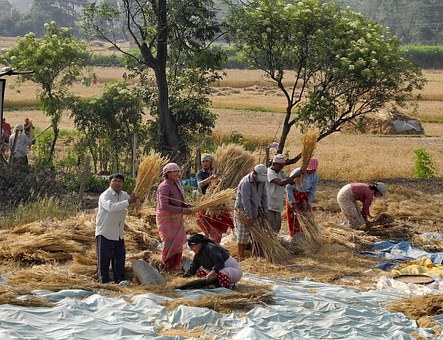Government officials are destroying tiny huts meant for menstruating women in Western Nepal. The practice of exiling women was outlawed by the Supreme Court in 2005 but criminalized only last year. Despite the ban, it continues to be practiced in parts of Western Nepal.
Why are women sent in exile?
Chhaupadi is the practice of menstrual taboo in Nepal. Believed to be impure and dirty while menstruating, women are exiled to huts or sheds outside their homes. Several of them die in these huts each year due to reasons ranging from snake bites and extreme weather conditions to sexual harassment.
Menstrual taboos are not new. Born out of a patriarchal mindset, purity-pollution norms imply that women themselves carry these attitudes. Elderly women in the family, be it grandmothers or aunts as well as religious leaders continue to pressurize younger women to adhere to such regressive practices. There is immense social pressure to abide by it. Laws have not been an effective deterrent.
When laws fail
The practice was banned in 2005 but declared a criminal offense only last year. The punishment is not severe; those caught forcing women into exile may be sentenced to imprisonment of three months or a fine of 3,000 Nepalese rupees. These punishments fail to change the patriarchal attitudes that govern the psyche of most residents. Such laws cannot be easily enforced. Neither does demolishing huts bring an end to it. They might be put in worse and even more hygienic conditions.
A study found that nearly 77% women practiced menstrual exile in Nepal. Of these, 60% practiced it despite the knowledge of its illegality. The reasons for continuing the practice are lack of education and more importantly, fear of ostracism.
Need for a deeper transformation
These huts, made of mud walls and straw roofs, are isolated and unhygienic. Subjecting women to such conditions is equivalent to putting them at the risk of death. What is required is a grassroot level engagement with the rural population. The point is not to demolish huts but the patriarchal attitudes which build them in the first place.
Education can play an important role in raising awareness. Women also need to stand up for themselves and against such untouchability taboos which treat them as inhuman. Bringing about a change in mindsets is a gradual process but it needs to be taken up seriously by all stakeholders. Government as well as non-governmental organizations must come together for this task. That would also help to enforce the laws. There can be no compromise on human rights and dignity if we are to achieve gender equality.














